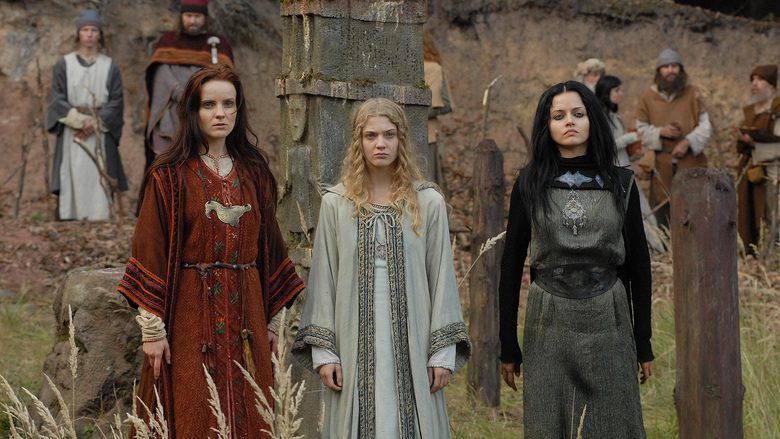This review contains spoilers.
The Pagan Queen is a rare film. There aren’t many movies about paganism during the Early Medieval Period, and even fewer treat the era without fantasy magic and glamour. In The Pagan Queen, director Constantin Werner gives us a beautiful and realistic look at historical paganism in his story about the legendary Slavic queen Libuse.
According to legend, Libuse was one of three daughters of the mythical Czech ruler Krok. Libuse was a seer, Kazi was a healer, and Teta, a priestess. The film opens with Krok’s death, and although Libuse is the youngest of his daughters, she takes his place as ruler. Libuse is a wise visionary and rules well with her sisters and an army of women led by her friend Vlasta. Still, as raiders invade the land, the tribesmen force her into a rocky marriage that ends in the founding of Prague.
The Pagan Queen is not one of those historical movies of epic proportions with hundreds of extras in clean costumes and CGI battles. In the director’s commentary, Werner says he doesn’t like those kinds of special effects, and they’re not the point of his film. Werner takes a more traditional approach to filmmaking, and the action scenes in The Pagan Queen are short and to the point, if a little disappointing at times. The film has a slow pace. Filmed entirely in the Czech Republic, most actors are Eastern Europeans whose first language is not English.
On the surface, The Pagan Queen looks like a simple film, but it’s full of symbolism and magic, which caused quite a stir when the film premiered in the Czech Republic. It’s the sort of magic that is a natural part of life — the honouring of family and ancestors, of the land, of the gods, and their people. Werner’s research led him to study folklore, mythology, and esotericism, as well as history. I recommend a second viewing of the movie with the director’s commentary.
The Pagan Queen is devoid of medieval Christian moral commentary. The women in this movie are strong. They are queens, priestesses, healers, and warriors in control of their bodies and their destinies. It is a movie that marks a transition from a pagan matriarchy to modern patriarchy. By the time it wraps up, magic is just the stuff of legends.
The Pagan Queen is not rated. It contains minimal violence and sexual scenes. It is now available for rent and purchase.

